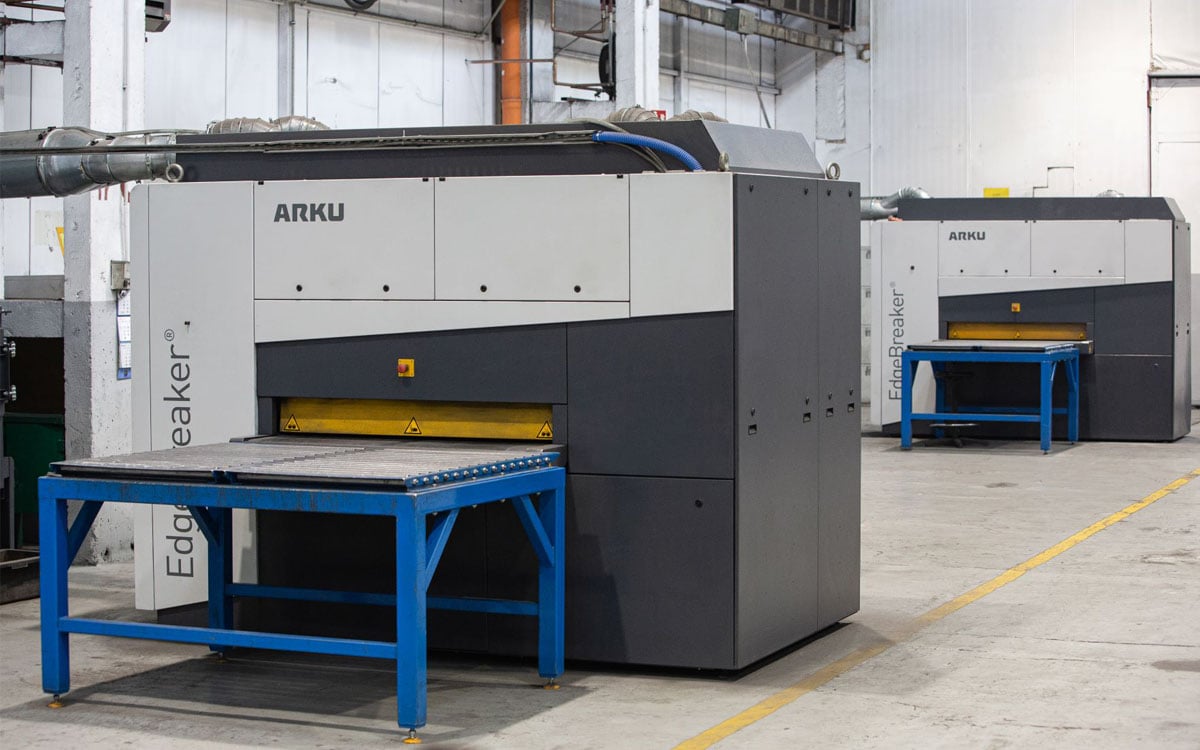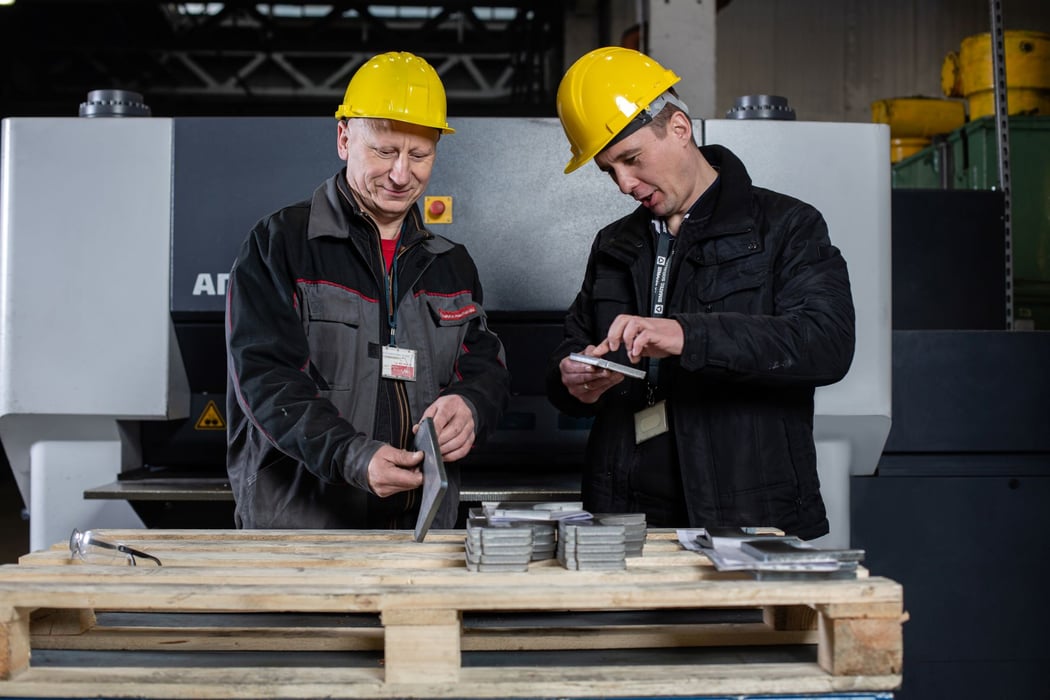Growth implemented with modern machines
At Instytut Mechaniki, around 500 employees produce sheet metal assemblies, frames and racks primarily for the railcar industry, but sometimes also for the automotive and bus sector. Customers include leading industry players such as Bombardier, Alstom and Stadler. The job shop handles the complete processing from cutting, forming, machining, welding and painting to bonding and assembly.
„Before, six employees were involved in leveling, now it's one or two.“
- Krzysztof Strzelecki, Production Coordinator at Instytut Mechaniki
The company is growing, and those responsible for production are constantly facing capacity limits. That is why Instytut Mechaniki approached ARKU. "At that time, we were primarily looking for a leveling solution," reports Krzysztof Strzelecki, Production Coordinator at the Polish company. He wanted to use it to cope with the increased quantities. During a visit to Baden-Baden, Strzelecki and his colleague Piotr Niżyński, Head of Maintenance, discovered yet another type of machine: The EdgeBreaker® series for deburring sheet metal components.






Another machine ordered from ARKU
Instytut Mechaniki ordered not only a FlatMaster® 55 leveling machine, but also an EdgeBreaker® 4000 deburring machine. With the leveling machine, the employees generally process all sheet metal parts made of steel and stainless steel that are not too thick or too wide. Before leveling, the sheets are cut with laser or plasma and deburred on an EdgeBreaker. The EdgeBreaker® 4000 proved so successful that Instytut Mechaniki ordered an EdgeBreaker® 2000 just two years later.
In comparison to the previous process, Instytut Mechaniki's production has improved significantly. "Before, we were deburring manually with angle grinders. Now we have more safety, more cleanliness, and less noise for the employees," says Niżyński. In addition, the machines are also more efficient: "Before, six employees were involved in leveling, now it's one or two." It's a similar story with deburring, even though it's harder to put into figures. Additionally, process reliability and quality are simply higher with the machines compared to processing them manually.



